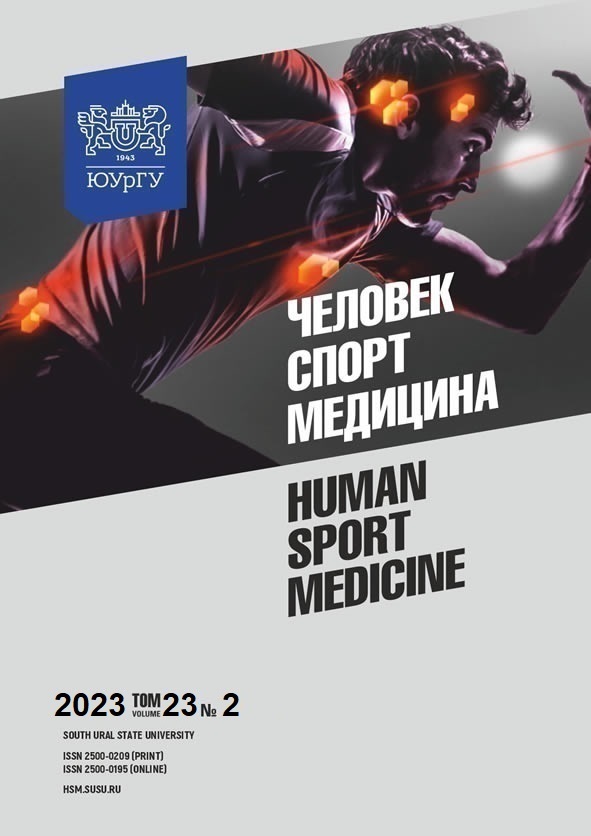LOAD-INDUCED STRESS IN POWERLIFTERS: PROSPECTS FOR EARLY DETECTION AND CORRECTION
Abstract
Aim. This paper was aimed at unifying the method for early detection of fatigue and justifying the need for a differentiated approach to training and competitions in powerlifting based on a comparative analysis of biochemical changes. Materials and methods. Based on Article 39 of Federal Law “On Physical Education and Sport in the Russian Federation” No. 329, the prospects for the early detection of fatigue were identified in 36 athletes from various departments within four educational institutions depending on their adaptation to training and competitive loads. The metabolic profile and the concentration of lipid peroxidation products (DC and SH-groups), glucose, urea, and creatinine were determined in blood, urine, and saliva. Results. The results obtained show a significant variability of the metabolic profile in athletes depending on the exercises performed (barbell deadlift, bench press, back squats) and the number of repetitions. Large energy expenditures have been noted during intense training, which, as a rule, are asymptomatic and are often ignored by athletes. It is demonstrated that long-term and unidirectional intense training activity combined with lifting heavy weights with short recovery intervals results in significantly increased compensatory time and adversely affects the physiological state and performance of an athlete after 6 months. Conclusion. It is advisable to adjust training activities for powerlifters of different ages. The individual approach to each athlete, accompanied by an explanation of the need for rational physical activity and a greater volume of aerobic exercise, will allow athletes to achieve the desired athletic performance and avoid physiological abnormalities.
References
References on translit
Copyright (c) 2023 Human. Sport. Medicine

This work is licensed under a Creative Commons Attribution-NonCommercial-NoDerivatives 4.0 International License.















